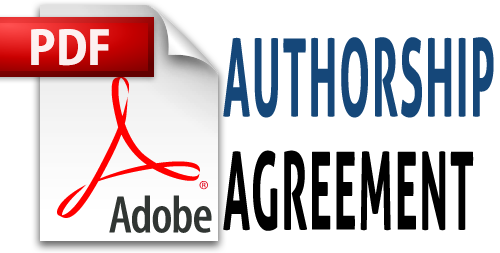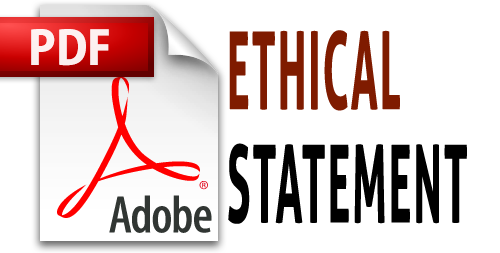PENGEMBANGAN KURIKULUM DENGAN MEMANFAATKAN TEKNOLOGI INFORMASI DAN KUMUNIKASI, SUATU GAGASAN
 nFn Sutjipto(1*)
nFn Sutjipto(1*)
(1) Peneliti Madya pada Pusat Kurikulum dan Perbukuan, Badan Litbang, Kementerian Pendidikan dan Kebudayaan
(*) Corresponding Author
 Abstract viewed : 3018
|
Abstract viewed : 3018
|  PDF downloaded : 395
PDF downloaded : 395
Abstract
The purpose of this paper was to examine the repertoire of ideas for curriculum development by utilizing information and communication technology in order to provide a breakthrough on the dynamics and complexity of curriculum development practices. Results of the study showed. First, the management of the curriculum development process that includes activities to share ideas, argument, contributedscientific papers, give feedback, provide feedback, the rationality of the policy decision makers, data processing, how the curriculum management, and results of develop ment can utilize information and communication technologies. Second, to take advantage of information technology and communication in curriculum development has some added value, such as easy in terms of faster information obtained, the cost in the sense that it does not require huge resources, broad reach in the sense that everyone can get involved, efficient and effective way to share, and provide a forum of freedom of speech which is at once loose the bonds of values or certain cultural norms. Third, the idea of developing a curriculum by utilizing information and communication technology as well as encouraging developers literate not only technology, but also able to understand, perceive, and apply power to the significance of the technology. Fourth, curriculum development by utilizing information and communication technology is considered a breakthrough way of working in this digital era
Abstrak
Tujuan dari penulisan ini adalah ingin mengkaji khasanah gagasan pengembangan kurikulum dengan memanfaat kan teknologi informasi dan komunikasi yang diharapkan dapat memberi terobosan mengenai dinamika dan kompleksitas praktik (praxis) pengembangan kurikulum. Hasil kajian menunjukkan. Pertama, pengelolaan proses pengembangan kurikulum yang mencakup aktivitas berbagi gagasan, adu argumen, berkontribusi karya tulis ilmiah, memberi tanggapan, memberi masukan, rasionalitas kebijakan pembuat keputusan, pengolahan data, cara kerja manajemen kurikulum, dan hasil dari pengembangan dapat mendayagunakan teknologi informasi dan komunikasi. Kedua, dengan memanfatkan teknologi informasi dan komunikasi dalam pengembangan kurikulum memiliki beberapa nilai tambah, seperti mudah dalam arti informasi lebih cepat diperoleh, murah dalam arti tidak memerlukan sumber daya yang besar, jangkauan luas dalam arti semua orang dapat terlibat, efisien dan efektif untuk berbagi, dan memberi wadah kebebasan berpendapat yang sekaligus lepas dari ikatan nilai-nilai atau norma budaya tertentu. Ketiga, gagasan pengembangan kurikulum dengan memanfaatkan teknologi informasi dan komunikasi sekaligus mendorong pengembang bukan hanya literate teknologi, tetapi juga mampu memahami, mempersepsi, dan mengaplikasikan arti penting daya guna teknologi. Keempat, pengembangan kurikulum dengan memanfaatkan teknologi informasi dan komunikasi dinilai merupakan terobosan cara kerja di era digital ini
Keywords
References
Ali, R., dan Katz. I. R. 2010. Information and Communication Technology Literacy: What Do Businesses Expect and What Do Business Schools Teach? ETS Research Report Series, volume 2010, Issue 2, December 2010.
Beauchamp, G. 1975. Curriculum Theory. Willmette, Illionis: The Kagg Press.
Carpenter, M. A., Li, M. dan Jiang, H. 2012. Social Network Research in Organizational Contexts: A Systematic Review of Methodological Issues and Choices, Journal of Management, July 2012; vol. 38, 4: pp. 1328-1361., first published on March 28, 2012.
Chewning, L. V., Chih-Hui Lai, dan Doerfel, M. L. 2013. Organizational Resilience and Using Information and Communication Technologies to Rebuild Communication Structures, Management Communication Quarterly, May 2013; vol. 27, 2: pp. 237-263., first published on November 29, 2012.
Crona, B. I. dan Parker, J. N. 2011. Network Determinants of Knowledge Utilization: Preliminary Lessons From a Boundary Organization, Science Communication, December 2011; vol. 33, 4: pp. 448-471., first published on October 5, 2011.
Dahl, B. M., Andrews, T., dan Clancy, A. 2014. Contradictory discourses of health promotion and disease prevention in the educational curriculum of Norwegian public health nursing: A critical discourse analysis, Scandinavian Journal of Public Health, February 2014; vol. 42, 1: pp. 32-37., first published on August 27, 2013.
Dasuki, S. I., Abbott, P., dan Azerikatoa, D. 2014. ICT and empowerment to participate: a capability approach, Information Development, November 2014; vol. 30, 4: pp. 321-331., first published on July 5, 2013.
Favoreu, C., Carassus, D. dan Maurel, C. 2016. Strategic management in the public sector: a rational, political or collaborative approach?, International Review of Administrative Sciences, September 2016; vol. 82, 3: pp. 435-453., first published on July 23, 2015.
Gascón, J. F. F., Alcalde, M. C., Seebach, S. dan Zamora, M. J. P. 2015. How elders evaluate apps: A contribution to the study of smartphones and to the analysis of the usefulness and accessibility of ICTS for older adults, Mobile Media & Communication, May 2015; vol. 3, 2: pp. 250-266., first published on January 13, 2015.
Jensen, C. B. 2010. Asymmetries of Knowledge: Mediated Ethnography and ICT for Development, Methodological Innovations Online, April 2010; vol. 5, 1: pp. 72-85.
Kamruzzaman, P. 2013. Civil society or ‘comprador class’, participation or parroting? Progress in Development Studies, January 2013; vol. 13, 1: pp. 31-49.
Kaplan, A.M. dan Haenlein, M. 2010. “Users of the world, unite! The challenges and opportunities of social media”, Business Horizons, Vol. 53 No. 1, pp. 59-68.
Kemkominfo. 2004. Telematika, Kebijakan dan Perkembangan, Tim Koordinasi Telematika Indonesia (TKPI), Kementerian Komunikasi dan Informatika Republik Indonesia, 2004.
Kompas, 19 September 2016. Dugaan Suap: Selalu Ada Kali Pertama..., hal. 3.
Krumsvik, R. 2012. Action Research and ICT Implementation, Research in Comparative and International Education, June 2012; vol. 7, 2: pp. 209 -225.
Lee, L. 2008. The Impact of Young People’s Internet Use on Class Boundaries and Life Trajectories, Sociology, February 2008; vol. 42, 1: pp. 137-153.
Lee, M. 2014. Bringing the Best of Two Worlds Together for Social Capital Research in Education: Social Network Analysis and Symbolic Interactionism, Educational Researcher, December 2014; vol. 43, 9: pp. 454-464., first published on October 28, 2014.
Macdonald, D., Hunter, L., dan Tinning, R. 2007. Curriculum Construction: A Critical Analysis of Rich Tasks in the Recontextualisation Field, Australian Journal of Education, August 2007; vol. 51, 2: pp. 112-128.
Maryani, E. dan Arifin, H. S. 2012. Konstruksi Identitas Melalui Media Sosial, Journal of Communication Studies, Vol. 1 No. 1, Desember 2012”, Fakultas Ilmu Komunikasi, Universitas Padjadjaran.
Miarso, Yusufhadi. 2011. Menyemai Benih Teknologi Pendidikan. Jakarta: Prenada Media Grup.
Morris, M. W. 2014. Values as the Essence of Culture: Foundation or Fallacy?, Journal of Cross-Cultural Psychology, January 2014; vol. 45, 1: pp. 14-24.
Ness, E. C. dan Gándara, D. 2014. Ideological Think Tanks in the States: An Inventory of Their Prevalence, Networks, and Higher Education Policy Activity, Educational Policy, March 2014; vol. 28, 2: pp. 258-280., first published on January 30, 2014.
Pan Suk Kim. 2009. Quality as a reflection of innovation? Quality management in the Korean government, International Review of Administrative Sciences, September 2009; vol. 75, 3: pp. 419-435.
Sivesind, K. dan Wahlström, N. 2016. Curriculum on the European policy agenda: Global transitions and learning outcomes from transnational and national points of view, European Educational Research Journal, May 2016; vol. 15, 3: pp. 271-278.
Smith, S., dan Chipley, L. 2015. Building Confidence as Digital Learners With Digital Support Across the Curriculum, Journal of Educational Technology Systems, December 2015; vol. 44, 2: pp. 230-239.
Sudibyo, Lies. 2011. Peranan dan Dampak Teknologi Informasi dalam Dunia Pendidikan di Indonesia, Widyatama, No. 2. Volume20 , 175 - 185.
Tapscott, D. 2008. Grown Up Digital: How the Net Generation is Changing The World. New York: McGraw-Hill.
Tyler, R.W. 1969. Basic principles of curriculum and instruction, 2nd ed. Chicago, IL: University of Chicago Press.
Vennebo, K. F. 2016. Innovative work in school development: Exploring leadership enactment, Educational Management Administration & Leadership, 1741143215617944, first published on January 11, 2016.
Wilkin, P. dan Boudeau, C. 2015. Public participation and public services in British liberal democracy: Colin Ward’s anarchist critique, Environment and Planning C: Government and Policy, December 2015; vol. 33, 6: pp. 1325-1343., first published on September 4, 2015.
Wu, B., Hu, Y., Gu, X. dan Lim, C. P. 2015. Professional Development of New Higher Education Teachers With Information and Communication Technology in Shanghai: A Kirkpatrick’s Evaluation Approach, Journal of Educational Computing Research, July 2016; vol. 54, 4: pp. 531-562., first published on December 20, 2015.
Younghoon C., Siew F. W., dan Myeong-Cheol P. 2016. A three-tier ICT access model for intention to participate online: a comparison of developed and developing countries, Information Development, June 2016; vol. 32, 3: pp. 226-242., first published on April 10, 2014.
Refbacks
- There are currently no refbacks.
Copyright (c) 2016 nFn Sutjipto

This work is licensed under a Creative Commons Attribution-NonCommercial 4.0 International License.
Kwangsan Indexed By
Kwangsan: Jurnal Teknologi Pendidikan diterbitkan oleh Balai Besar Guru Penggerak (BBGP) Prov. Jawa Timur.
Kementerian Pendidikan dan Kebudayaan
Alamat Redaksi:
Jl. Mangkurejo, Ds. Kwangsan, Sedati - Sidoarjo.
Telp 0318911373 Fax. 0318911392
Email: jurnal.kwangsan@kemdikbud.go.id & jurnalkwangsan@dikbud.belajar.id






























